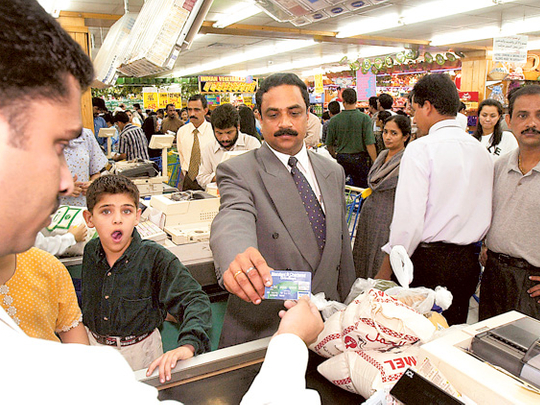
Dubai: The volume of cashless payments in the Middle East, as well as Central Europe and Africa, are expected to have reached 27 billion transactions in 2012, a new report showed.
The World Payments Report 2013 by Capgemini and the Royal Bank of Scotland (RBS) said non-cash payments in the Central Europe, Middle East and Africa (Cemea) region reached 21 billion transactions in 2011, from barely 11 billion in 2008.
The amount of cashless transactions in the region is still lagging behind other countries, but industry experts earlier said that some markets like the UAE are now shifting at a brisk pace towards a digital economy. MasterCard revealed in its report last week that paper bills and coins remain the prominent mode of payment in the country, with non-cash payments accounting for only less than a third (26 per cent) of consumer transactions in the UAE.
The World Payments Report said investments in payments services and infrastructure are helping fuel the growth in electronic payments in the region, but the future growth will rely strongly on the ability to set up transparent governance and proactive policies that encourage investment.
The governments and private sector in the region have already implemented a number of initiatives to improve technology and payment infrastructures to support the adoption of non-cash payments.
In 2012, MasterCard launched near field communication (NFC)-based contactless payment programmes in the UAE, Qatar and Lebanon. Only this year, the UAE Central Bank announced the introduction of a direct debit system, which is seen to give an impetus to non-cash payments in the market.
“With the increasing costs of cash, and the negative impact this has on any economy, governments across [Middle East and Africa] have realised the importance of modernising the payment industry and incentivising the move towards a cash-light society,” Eyad Al Kourdi, UAE country manager for MasterCard, told Gulf News earlier.
However, one of the areas that the region needs to focus on is transparency and the lack of a consolidated approach to promote non-cash payment methods.
According to the World Payments Report, the region’s payments market is still fragmented and diverse, with each country in the region pursuing its own agenda, and the payments instruments, investments and initiatives are not rolled out on a wider basis.“By consolidating initiatives – be they public or private, telecom or bank-led, a move towards more global standards and operating models can be made,” the report said. “Efforts are best backed by public or political initiatives; at present many are still too limited or lacking transparency. For example, a Middle East initiative to create a harmonised payment area remains in the design phase, many years after it was announced,” the report added.
The report also noted there is still insufficient data for several Middle Eastern and African markets. “This lack of data must be addressed in order for the industry to better assess true market conditions and potential,” the report said.












